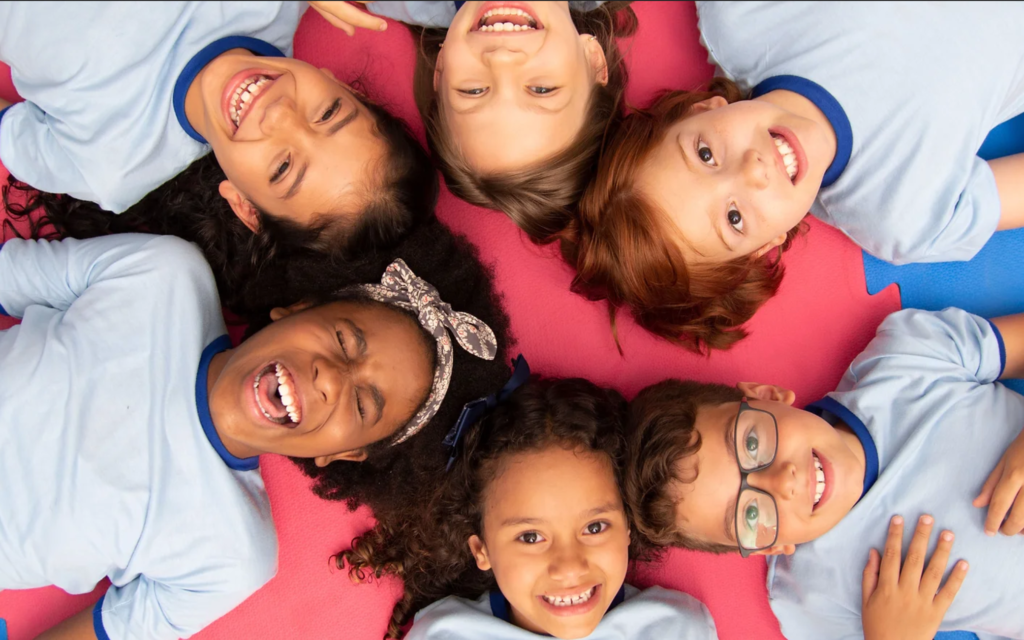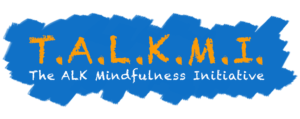The ALK Mindfulness Initiative (TALKMI) came into existence in an interventionist mode during the COVID-19 pandemic. It is a breakthrough program for inner city children and young people that teaches mindfulness and social and emotional learning (SEL). Mindfulness is the intentional practice of paying attention to the present moment with openness, curiosity and acceptance. It involves being aware of one's thoughts, feelings and bodily sensations without judgment and, instead, responding with kindness and understanding. According to the Collaborative for Academic, Social and Emotional Learning (CASEL), social and emotional learning (SEL) is the process through which young people and adults acquire and apply the knowledge, skills and attitudes to develop healthy identities, manage emotions and achieve personal and collective goals, feel and show empathy for others, establish and maintain supportive relationships, and make responsible and caring decisions.

The ALK Mindfulness Initiative (TALKMI)
During the pandemic, distance learning was a requirement and children’s and young people’s homes became their classrooms. The importance and necessity of the structure and socialization that come with children and young people attending school every day cannot be overstated. This includes arriving to school on time, perhaps wearing a uniform, learning about expectations for proper behavior, appropriately interacting with other students, teachers and staff, being served breakfast and lunch, learning through direct interaction with teachers and staff about subjects such as reading, writing, comprehension, mathematics, history, geography, science, social studies, physical education, art and music. Attending school also requires that students adapt to learning school subjects that may be difficult through greater input and guidance from teachers and staff. Schools also provide the opportunity for children and young people to learn how to think and to think critically, an invaluable life skill.
Making the transition from classrooms to homes for school learning, even for students coming from homes with the greatest resources to facilitate learning e.g., dedicated learning space, desk and chair, a functioning computer and printer, reliable internet, access to adequate and healthy foods, help with schoolwork from parents or other family members, experienced challenges because of the requirement for remote learning during the spring of 2020 and the 2020-2021 school year. As a result, the structure, routine, social interaction and student-teacher engagement were absent. For students coming from homes where resources were limited or very limited and compounded by issues such as economic stress, cramped living conditions, little to no help with schoolwork from parents or other family members, noise and less than ideal family dynamics, learning was difficult at best and impossible at worst. The pandemic has not just put a spotlight on existing challenges that can act as barriers to student learning and academic success but it has also created new ones. This includes increased levels of social isolation, more students falling behind academically and increases in mental health challenges.
The ALK Mindfulness Initiative (TALKMI) is a woman and minority owned business. Its founder and president is Mrs. Aisha L. Knox who is a dedicated leader and advocate in the effort to help children and young people reconnect with their innate healing ability, wisdom and vitality. The mission of TALKMI is to create a culture of mindfulness in inner city schools where children and young people can positively express themselves through self-reflection, mindful communication and compassionate action. The goals of TALKMI are to: (1) nurture and educate children and young people by promoting their development; (2) empower children and young people to reach their full potential and to make a positive impact in their lives and the lives of others; and (3) strengthen family and community engagement.

The ALK Mindfulness Initiative (TALKMI) is a breakthrough program for inner city children and young people that teaches mindfulness and social and emotional learning (SEL).
Sign up for our newsletter to receive updates about TALKMI
Copyright © 2021 Theme Ocean , All rights Reserved.
Created by Theme Ocean
